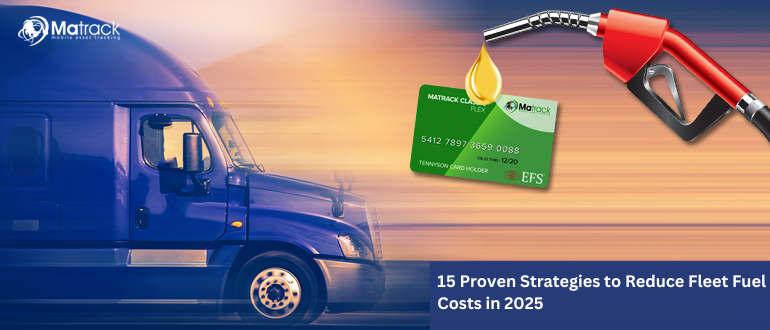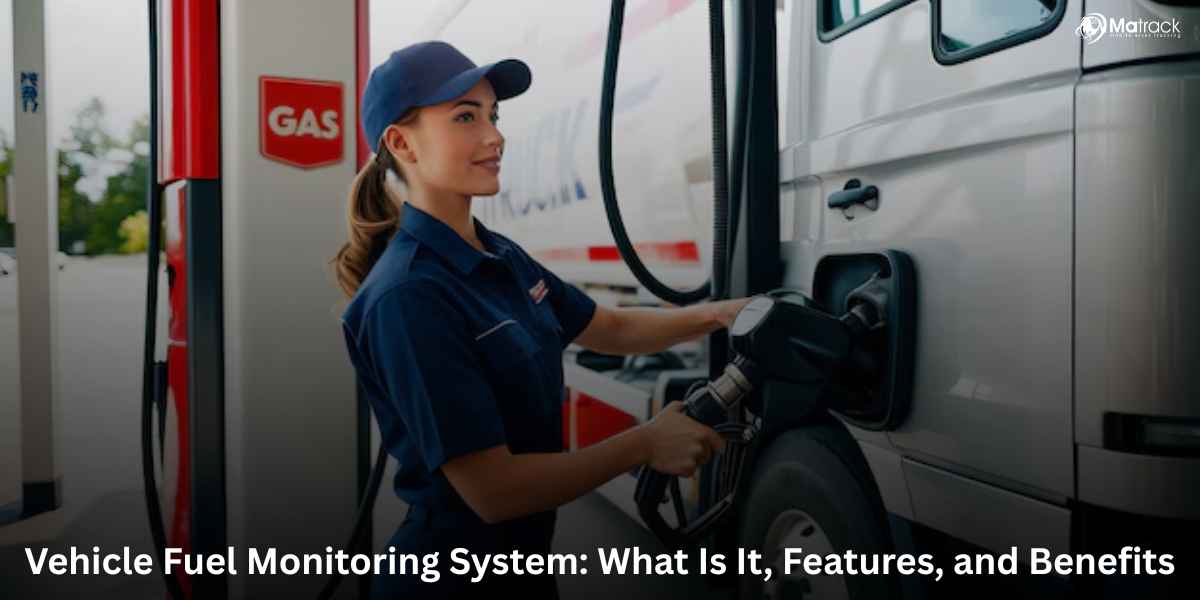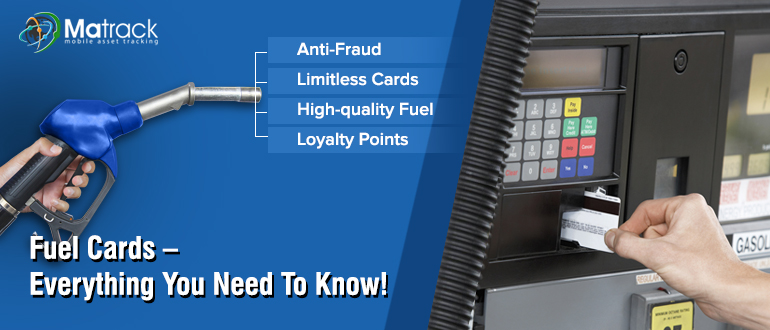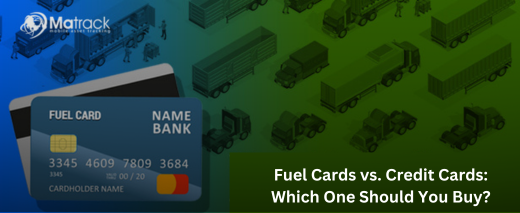Key Takeaways
- Optimizing vehicle choice, route planning, and driver behavior significantly reduces fleet fuel costs.
- Using telematics, fleet fuel cards, and real-time fuel tracking prevents overspending and improves efficiency.
- Regular maintenance, weight reduction, and alternative fuel adoption enhance fuel savings and fleet performance.
- Matrack Fleet Fuel Card helps fleets maximize savings with fuel discounts, expense tracking, and optimized fuel station routing.
Why Reducing Fleet Fuel Costs Matters
Fuel costs make up 30-40% of total fleet expenses, impacting overall profitability. High fuel prices and poor management increase operating costs.
Using fuel-saving strategies and smart technology helps cut expenses by 15-30%. Lower fuel consumption improves efficiency and boosts business profits.
15 Proven Strategies to Reduce Fleet Fuel Costs
1. Invest in Fuel-Efficient Vehicles
Fuel-efficient vehicles lower fuel consumption and operating costs. Businesses should invest in hybrid, electric, or advanced diesel models.
Reducing vehicle weight improves efficiency. Choosing aerodynamic designs helps minimize fuel waste on the road.
2. Optimize Routes with GPS Tracking
Poor route planning leads to unnecessary mileage. AI-powered GPS tracking helps drivers avoid delays and traffic congestion.
Fleet managers can reduce mileage by planning multi-stop deliveries efficiently. Shorter, well-optimized routes lead to lower fuel consumption.
3. Train Drivers for Fuel-Saving Techniques
Driving habits directly impact fuel economy. Training drivers in smooth acceleration, steady speeds, and gentle braking improves efficiency.
Using telematics to monitor driving behavior helps reduce fuel waste. Avoiding harsh acceleration can cut fuel usage by up to 30%.
4. Reduce Idling to Save Fuel
Idling burns unnecessary fuel and wears out engines faster. Implementing idle time limits ensures fuel is only used when needed.
Auto-shutdown features prevent excessive idling. Encouraging drivers to turn off engines during stops leads to measurable savings.
5. Track Fuel Usage with Management Systems
Real-time fuel monitoring helps businesses detect inefficiencies. A fuel management system provides insights into consumption patterns.
Tracking individual vehicle performance prevents fuel waste. Setting spending controls ensures fuel is used responsibly.
6. Implement a Fleet Fuel Card System
Fleet fuel cards provide spending control and cost tracking. They help businesses reduce unauthorized purchases and improve budget management.
Fuel cards also offer discounted rates at partner stations. Businesses can streamline fuel expense reporting for better cost control.
7. Keep Vehicles Well-Maintained
Regular maintenance improves fuel efficiency and extends vehicle life. Checking tire pressure, filters, and engine oil reduces excess fuel use.
Frequent diagnostics help detect inefficiencies early. A well-maintained vehicle burns less fuel and operates more smoothly.
8. Minimize Excess Weight and Drag
Carrying unnecessary cargo increases fuel consumption. Removing excess weight helps vehicles operate more efficiently.
Aerodynamic adjustments reduce wind resistance. Closing windows at high speeds and using streamlined designs save fuel.
9. Adopt Smart Fuel Purchasing Strategies
Fuel costs fluctuate daily, making strategic purchasing essential. Buying in bulk or using fleet discounts helps secure better rates.
Tracking fuel price trends allows businesses to refuel at the right time. Comparing fuel stations ensures cost-effective refueling.
10. Use Telematics for Smarter Fleet Management
Telematics systems provide real-time data on vehicle performance. AI-driven insights help businesses detect inefficient fuel usage.
Fleet managers can use predictive analytics to prevent waste. Optimized vehicle operations lead to significant fuel savings.
11. Follow a Preventive Maintenance Schedule
Preventive maintenance reduces the risk of breakdowns and fuel waste. Regular engine checks and oil changes ensure efficient performance.
Brake and transmission inspections prevent unnecessary energy loss. A proactive approach helps fleets run smoothly while saving fuel.
12. Switch to Alternative Fuels or EVs
Electric and hybrid vehicles significantly lower fuel costs. Businesses can transition to sustainable options for long-term savings.
Biofuels and compressed natural gas (CNG) offer cleaner alternatives. Exploring alternative energy reduces dependency on gasoline.
13. Consolidate Shipments and Reduce Trips
Grouping deliveries into fewer trips minimizes fuel use. Businesses should focus on maximizing load efficiency per trip.
Carpooling for employee transport further reduces fleet fuel costs. Fewer vehicles on the road lead to lower fuel expenses.
14. Leverage Data Analytics for Efficiency
Analyzing fuel consumption patterns helps identify problem areas. AI-powered data analytics provide actionable cost-saving insights.
Monitoring driver habits allows businesses to refine training programs. Informed decision-making improves fleet-wide fuel efficiency.
15. Stay Updated on Industry Trends
New fuel-saving technologies emerge every year. Businesses should stay informed about innovations that improve efficiency.
Monitoring fuel economy regulations ensures compliance. Adopting industry best practices leads to sustained cost reductions.
How Matrack Helps Reduce Fleet Fuel Costs
Matrack Fleet Fuel Card helps fleets save up to $2000 per vehicle by providing discounts and smart fuel management. It routes drivers to the cheapest gas stations, cutting fuel costs by 10-20% per gallon.
With real-time fuel tracking and spending controls, businesses can prevent overspending and fuel fraud. The card is accepted at 95% of U.S. fuel stations, ensuring convenience and flexibility for all fleet sizes.
Matrack also simplifies IFTA reporting and integrates GPS tracking with fuel purchases. This allows businesses to optimize routes, track expenses accurately, and improve overall fleet efficiency.
Conclusion
Reducing fleet fuel costs requires efficient vehicle choices, smart route planning, and fuel-saving driving habits. Regular maintenance, telematics, and fuel management systems further improve efficiency and cut unnecessary expenses.
Businesses can save 15-30% on fuel costs by adopting alternative fuels, reducing vehicle weight, and leveraging data analytics. Staying updated on industry trends ensures long-term savings and keeps fleets running at peak performance.






